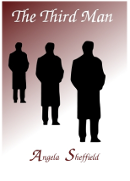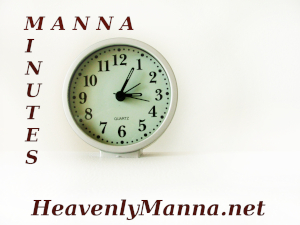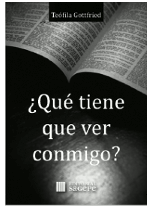Truth really can be stranger than fiction.
First Page - Now launched! All the stories are true, or based on real events. Unlimited reading for $4.99 / month. No downloads. Read on your phone, tablet or computer.
La verdad puede ser más extraña que la ficción.
First Page - ¡Ya está en marcha! Todas las historias son verídicas, o están basadas en hechos reales. Lectura ilimitada por $4.99 / mes. No hay que descargar nada. Lea en su teléfono, tableta u ordenador.
Manna Minutes Podcast: Eye-opening Bible study in less than five minutes! Access all episodes here.
Manna Minutes en español:
Estudio bíblico que nos hace abrir los ojos en menos de cinco minutos! Acceda a todos los episodios aquí.
Manna Minutes Podcast auf Deutsch:
Augenöffnendes Bibelstudium in weniger als fünf Minuten! Alle Episoden finden Sie hier.
Was There A Curse On Helen's Romantic Life?
The Third Man by Angela Sheffield is based on a true story. Read chapter one now!
View Content By Specific Category
¿Qué tiene que ver conmigo? por Teófila Gottfried
Lo que leemos en la Biblia tiene que ver con todos los seres humanos, sean cristianos o judíos, ateos o agnósticos, budistas, musulmanes o adherentes a alguna de las filosofías o nuevas religiones que surgen en el mundo. ¿Por qué? Ver mayor información sobre este interesante libro.
Scripture of The Day - St. John 14:6
Jesus saith unto him, I am the way, the truth, and the life: no man cometh unto the Father, but by me.
Escritura del día - San Juan 14,6
Jesús le dijo: Yo soy el camino, y la verdad, y la vida; nadie viene al Padre, sino por mí.
Bibelstelle des Tages - Johannes 14,6
Jesus spricht zu ihm: Ich bin der Weg und die Wahrheit und das Leben; niemand kommt zum Vater, denn durch mich!
Is Modern Whole Grain Wheat Unhealthy? An Introduction to Ancient Grains

The Old Testament biblical scripture of Ezekiel 4:9 says, "Take thou also unto thee wheat and barley, and beans, and lentils, and millet, and fitches, and put them in one vessel, and make thee bread thereof."
This scripture is an actual recipe for sprouted whole grain bread that is still being made today! It has even been marketed under the name of "Ezekiel Bread", and is sold in modern grocery stores. Obviously, the bread, in keeping with how bread was made in history, is whole grain.
Most health-conscious people believe they're doing the right thing when they include whole grains, especially wheat, in their diet. Nevertheless, many end up disappointed when they discover they don't tolerate it very well. Practically all breads and pastas sold in the United States, whether from white or whole grain flour, are made from some form of wheat. Wheat is mentioned numerous times throughout the Bible as a good and wholesome food. And it symbolizes things that God's word labels as good. Why then is it causing so many people serious health problems? The answer lies in the fact that modern wheat is not the same substance as the wheat of which the scriptures speak.
Archaeologists have discovered many different varieties of grains that are often generically referred to as "wheat" in ancient manuscripts. These real grains (heirloom varieties) have not been hybridized or genetically modified, unlike modern wheat. They are significantly higher in nutrients and contain a gluten that is unlike the gluten that resulted from man's attempt to play God by interfering with wheat's genetic make-up. Many people who are allergic to modern wheat are not at all allergic to the real and original varieties of whole grain wheat that God created. There are also medically confirmed cases if people with Celiac disease who are able to consume the wheat from antiquity.
Your Choices of Heirloom Wheat: Spelt, Kamut, Einkorn, Emmer And More!
What then are the varieties of real wheat? One variety that is believed to have been a staple in ancient Egypt is known as kamut (kah-moot / kah-moo). It is usually sold only in health food stores or in the health food section of major grocery stores. It can be used to make breads, pastas, pastries, pancakes, and a variety of other dishes. It is considerably lighter and fluffier than the unnatural modern wheat of today. Another ancient wheat grain that is believed to have been extensively cultivated in Mesopotamia is known as "spelt". Again, it's much lighter than modern wheat, is considerably richer in nutrients, and usually tolerated very well by those with wheat allergies. It may be found in health food stores or sections of the average grocery store.
Other real and ancient grains include, but are not limited to, einkorn (difficult to locate), emmer, sorghum, millet, quinoa, and amaranth. All of these grains have been around since antiquity, and they have nourished the people of ancient days, including the servants of God who often lived well past one hundred years even after the Great Deluge.
What motivated the "creation" of modern wheat? Spelt, an ancient grain that was once grown in this country, like many of the other real grains, takes a little longer to grow. And it is more difficult to process due to its extremely tough outer shell. Therefore, man, in his impatience and greed for riches, decided he would make his own wheat, customized to his specifications. Someone once compared such an attitude to that of the fictitious mad creator of Frankenstein who ended up with a monster. Modern wheat is now suspected of being a contributor to a host of diseases and ailments, including cancer. Should it really be referred to as a relative of ancient wheat, or as a monster food whose man-made gluten has, and continues to cause damage? Although some people with Celiac disease cannot tolerate any gluten at all, not even that of the ancient grains, one has to question if they would have ever had such a problem had they never consumed modern wheat in the first place.
Another problem arose from the creation of modern wheat. While man embraced a grain with a protective covering much less tougher than that of real grains, he ended up throwing away God's built-in guard against pests. The tough outer shell of the true grains from antiquity served to protect against pests. when this protection was removed, the use of carcinogenic pesticides increased, demonstrating that one instance of interference with God's foods only leads to a multitude of problems. The tough outer shell also served to preserve the nutrients inside of the grain for extremely long periods of time. It's estimated that real grains stored in simple granaries, may be kept fresh for approximately two hundred years. However, that time may be longer considering that whole grain wheat found in king Tutankhamen's tomb was removed, planted, and sprouted. This is documented by archaeologists, and means that wheat more than three thousand years old germinated!
All the Diffference in the World between God's Wheat and Man's Genetically Modified "Wheat"
When the scripture of Ezekiel 4:9 speaks of wheat as an ingredient to use in the making of bread, it is speaking of the whole grain wheat that God created, not man's botched "wheat". The Lord's wheat is perfect in nutrition, requires no need for pesticides, is tough enough to survive hundreds of years of storage, has a gluten that doesn't damage the body, has a flavor that is revered among great chefs, is hearty enough to grow in poor soil; and even grows wild to supply food for the nomads.
Change in anything major is often slow and worrisome, but not impossible. Ultimately, it is the consumers who fill the pockets of those who produce tainted, altered, dangerous, and freakish foods. Grocers and restaurant owners are now being compelled to hear the demands of informed consumers who want and need to return to the wholesome, life-giving foods that God gave in abundance. Every request to the heads of grocery stores for the availability--at fair prices--of real grains, counts. Every refusal to support the production of modern wheat counts. Every voice can make a difference. And every action can influence someone else. So, is wheat healthy or not? Man's modern wheat is not healthy. God's whole grain wheat is.
 Based on true events, The Third Man by Angela Sheffield, brings the Bible up close and personal as the characters face real issues of life: Betrayal, deceit, romance, bitterness, anger against God, hopelessness, will power, perplexity, triumph, unforgiveness, mental illness, and the "Alcohol made me do it" excuse. Read chapter one FREE now.
Based on true events, The Third Man by Angela Sheffield, brings the Bible up close and personal as the characters face real issues of life: Betrayal, deceit, romance, bitterness, anger against God, hopelessness, will power, perplexity, triumph, unforgiveness, mental illness, and the "Alcohol made me do it" excuse. Read chapter one FREE now.
Copyright notice: This website and its content is copyright of © Heavenly Manna (HeavenlyManna.net) 2002-2025.
Comments/Comentarios:
Send Comments or a Private Message about One of Our Services / Envíe Comentarios o un Mensaje Privado acerca de nuestros servicios
Once comments reach 10, they close. IF YOU USE PROFANITY, WE WILL REJECT YOUR COMMENT AUTOMATICALLY.
We're a small team, please be patient as we review comments.
©2003 - 2013 Heavenly Manna Ministries
Images: courtesy of Free Digital Photos, openstockphotography.org, FreeFoto.com, Wikimedia Commons. Multiple crosses image - Wikimedia Commons - C.G.P Grey - Animation by Heavenly Manna










